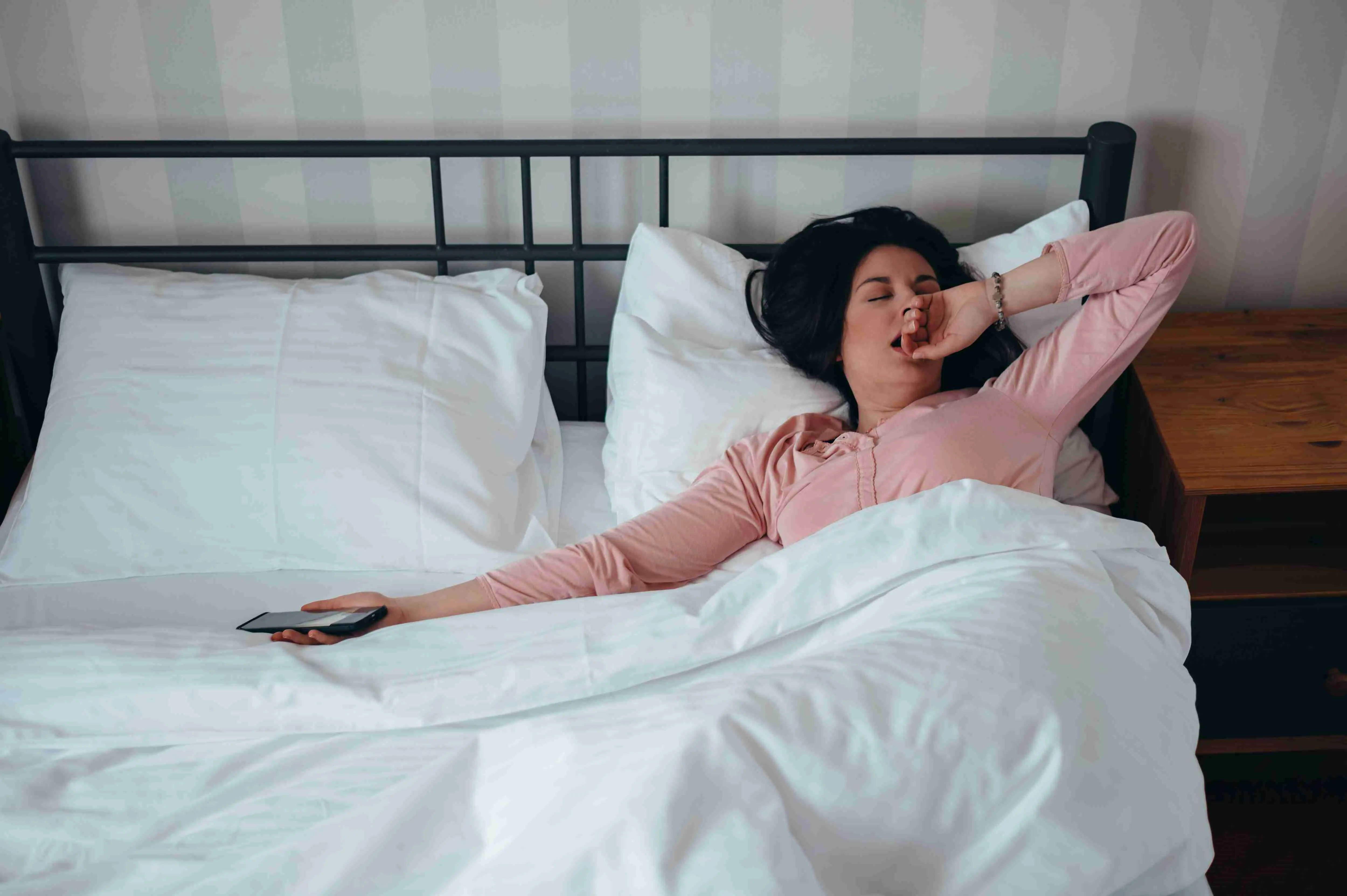Physical health is the body's state of well-being and optimal functioning. It encompasses various aspects, such as exercise, nutrition, and sleep, that contribute to maintaining a healthy body.
By understanding these aspects and implementing these self-care methods in our lives in a healthy and balanced way, we can improve our physical wellness and our overall quality of life.
Components of Physical Health

Physical health is a crucial aspect of overall well-being, and it encompasses various components that contribute to a person's overall fitness and vitality.
Cardiovascular Health
Cardiovascular health refers to the efficiency and strength of the cardiovascular system, which includes the heart, blood vessels, and blood. Regular exercise that raises the heart rate and increases the breathing rate helps to improve cardiovascular health.
Engaging in activities such as running, cycling, or swimming can help strengthen the heart muscle, improve circulation, and lower the risk of heart disease.
Muscular Strength and Endurance
Muscular strength is defined as the muscles' ability to exert force against resistance. It plays a crucial role in daily activities such as lifting heavy objects or participating in sports.
Regular strength training exercises, such as weightlifting or resistance training, can help improve muscular strength. Muscular endurance, on the other hand, refers to the ability of the muscles to sustain repeated contractions over an extended period.
By engaging in these exercises, individuals can develop stronger muscles, which can enhance their overall physical health and reduce the risk of injuries, and by improving muscular endurance, individuals can enhance their stamina and perform better in endurance-based activities.
Flexibility and Mobility
Flexibility refers to the ability of joints and muscles to move through a full range of motion without pain or stiffness. Improved flexibility can enhance performance in physical activities such as sports and reduce the risk of injuries. Regular stretching exercises can help improve flexibility.
Mobility, on the other hand, refers to the ability to move freely and efficiently. It involves coordination, balance, and stability. Maintaining good mobility is crucial for performing daily activities such as walking, sitting, or bending down without discomfort or limitations.
Body Composition
Body composition refers to the proportion of fat, muscle, bone, and other tissues in the body. Maintaining a healthy body composition is important for overall health and well-being. Excessive body fat can increase the risk of various health conditions, such as obesity, heart disease, and diabetes.
On the other hand, having an adequate amount of muscle mass can improve metabolism and support better overall physical function.
Nutrition and Physical Health
Proper nutrition plays a vital role in physical health improvement. A well-balanced diet consisting of essential nutrients as well as sufficient hydration is crucial to achieving your optimal physical fitness and performance goals.
Essential Nutrients for Physical Fitness
- Protein: Protein is essential for muscle growth and repair. Athletes and individuals engaging in regular exercise need to consume adequate amounts of protein to support their muscle development and recovery.
- Carbohydrates: Carbs are the body's primary source of energy and are necessary for fueling workouts and maintaining endurance. It's important to consume complex carbohydrates such as whole grains and fruits, as they provide sustained energy release.
- Healthy Fats: Healthy fats are important for physical health because they assist with hormone production and nutrient absorption. Omega-3 fatty acids found in foods like fish and nuts reduce inflammation and improve cardiovascular health, which can further enhance physical fitness.
Hydration and Physical Performance
Hydration is essential for physical performance as it affects various bodily functions. During exercise, the body loses water through sweat, leading to dehydration if not properly replenished. Dehydration can negatively impact physical performance by causing fatigue, decreased endurance, and impaired cognitive function.
Therefore, it is important to maintain adequate hydration levels before, during, and after physical activity to optimize performance and prevent any adverse effects on health.
The Impact of Sleep on Physical Health

Sleep plays a crucial role in many aspects of our lives, mainly and most importantly, our physical health and well-being. It’s safe to say that physical health and sleep are strongly interconnected, with sleep positively impacting physical health in so many ways.
Muscle Recovery
During sleep, the body goes through various stages of rest and repair, allowing muscles to recover from the wear and tear of daily activities and exercise. Lack of sleep can hinder this process, leading to slower muscle recovery and an increased risk of injuries.
Adequate sleep, on the other hand, promotes optimal muscle recovery, allowing individuals to perform better in physical activities and reduce the risk of muscle-related issues.
Weight Management
Sleep deprivation is linked to an increased risk of weight gain and obesity. Lack of sleep can disrupt the hormones responsible for appetite regulation, leading to increased cravings for unhealthy foods and decreased feelings of fullness.
Additionally, inadequate sleep can affect metabolism, making it harder for the body to burn calories efficiently.
Improved Cardiovascular Health
Insufficient sleep is associated with an increased risk of developing cardiovascular diseases such as hypertension, coronary artery disease, and stroke.
During sleep, the body works to regulate blood pressure and reduce inflammation, both of which are crucial for maintaining a healthy cardiovascular system. Lack of sleep can disrupt these processes, leading to higher blood pressure levels and increased inflammation in the body.
Better Immune System
When we sleep, our immune system produces and releases cytokines, which are proteins that help fight off infection and inflammation. Thus, a lack of sleep can weaken our immune system, making us more susceptible to illnesses and infections.
Hormonal Balance
Sleep helps regulate the production of hormones such as cortisol, insulin, and growth hormones. These hormones are involved in various bodily functions, including metabolism, stress response, and cell regeneration. Therefore, a disrupted sleep pattern can lead to hormonal imbalances, which can harm our overall physical health.
Sleep Deprivation's Impact on Physical Health
- High Blood Pressure: Lack of sleep increases blood pressure levels and puts individuals at a higher risk of developing hypertension. This is because sleep deprivation disrupts the normal functioning of the cardiovascular system, leading to an increase in heart rate and blood pressure.
- Decreased Cognitive Functions: Sleep deprivation has a significant impact on cognitive functions. Lack of sleep can impair various cognitive processes, including attention, memory, and decision-making. When individuals do not get enough sleep, their ability to concentrate and focus decreases, affecting their performance in daily activities and tasks.
- Type 2 Diabetes: Lack of sleep affects the body's ability to regulate blood sugar levels, leading to insulin resistance. Insulin resistance is a key factor in the development of type 2 diabetes. Chronic sleep deprivation can also lead to increased production of stress hormones, which further worsen insulin resistance and increase the risk of developing diabetes.
- Obstructive Sleep Apnea: OSA is a condition characterized by pauses in breathing during sleep, often due to a blockage in the airway. Sleep deprivation can contribute to the development or worsening of OSA. This condition not only disrupts sleep quality but can also have serious implications for physical health. Learn more about sleep apnea here.
- Heart Attack and Stroke: Lack of sleep elevates blood pressure and increases inflammation in the body. These factors can contribute to the development of cardiovascular diseases and increase the likelihood of experiencing a heart attack. It is crucial to prioritize sufficient sleep as part of a healthy lifestyle to reduce the risk of heart-related issues.
The Link Between Sleep and Physical Activity
Adequate sleep is crucial for maintaining good physical health. There is a strong link between sleep and physical activity, highlighting the importance of a good night's rest. When we sleep, our bodies go through various restorative processes that are essential for optimal physical functioning. This will be further discussed in the next section.
The Role of Exercise in Promoting Better Sleep
The importance of physical activity in promoting better sleep can't be overstated. Physical activity, regardless of your preferred form, consistently enhances the quality and length of your sleep, body health, and physical well-being.
Aerobics
Aerobic exercises, such as running or cycling, increase the release of endorphins in the body, reducing stress and anxiety levels. This helps individuals relax and unwind before going to bed, resulting in a more peaceful sleep.
Weightlifting
Weightlifting reduces the symptoms of common sleep disorders, such as insomnia and sleep apnea, by increasing muscle strength and tone, that's why it's considered by many to be the best physical exercise. This form of exercise improves overall cardiovascular health and decreases the likelihood of developing breathing problems during sleep.
Walking or Jogging
Walking or jogging is a simple yet effective form of exercise that can significantly impact sleep quality. Going for a brisk walk or jog during the day helps increase blood flow and oxygen intake in the body, leading to improved sleep patterns.
Yoga
Yoga combines physical postures, breathing techniques, and meditation to promote relaxation and reduce stress levels. By quieting the mind and focusing on deep breathing, individuals can calm their nervous system and prepare their bodies for a restful night's sleep.
Stretches
Stretches help to release tension in the muscles, improve flexibility, and promote relaxation. By stretching before bedtime, individuals can release any built-up tension from the day and prepare their bodies for a restful night's sleep.
Additionally, stretching can help to alleviate any muscle soreness or stiffness that may interfere with sleep quality.
Common Physical Health Issues and Their Impact on Sleep

Just like how sleep quality impacts physical health, some physical health issues directly impact sleep quality as well, and it’s important to address them to improve your sleep quality and overall well-being.
Obesity and Sleep Apnea
Obesity refers to excessive body weight due to the accumulation of fat. This condition can lead to various health problems, including sleep apnea.
Sleep apnea is a sleep disorder characterized by pauses in breathing or shallow breaths during sleep. Weight gain can make the airway narrow or blocked, which is a common cause of it.
Chronic Pain and Sleep Disruption
Chronic pain is one of the most common physical health issues that can have a significant impact on sleep. The constant discomfort and pain experienced by individuals with chronic pain can make it extremely difficult to fall asleep and stay asleep throughout the night.
This disruption in sleep patterns can lead to a variety of negative consequences, including daytime fatigue, decreased productivity, and increased risk of accidents.
Sleep Disorders
Sleep disorders such as insomnia, restless legs syndrome, and narcolepsy can impact cognitive function and mental health. Individuals who experience disrupted sleep due to cardiovascular issues may struggle with concentration, memory, and mood regulation.
Chronic sleep deprivation can contribute to the development of mental health disorders such as depression and anxiety.
Cardiovascular Issues
Cardiovascular issues such as high blood pressure and heart disease can lead to sleep disturbances, making it difficult for individuals to fall asleep or stay asleep throughout the night. This can result in poor quality sleep and insufficient rest, which can further worsen cardiovascular health.
Strategies for Improving Physical Health

In today's fast-paced and sedentary lifestyle, it is important to prioritize our physical health. Implementing strategies to improve physical health can have numerous benefits, including increased energy, reduced risk of chronic diseases, improved mental well-being, and enhanced overall quality of life.
Regular Exercise
Engaging in physical activity for at least 30 minutes a day can help maintain a healthy weight, strengthen muscles and bones, boost cardiovascular health, and improve flexibility and balance. Incorporating a variety of exercises, such as cardio, strength training, and flexibility exercises, can provide a holistic approach to physical fitness.
Maintaining a Balanced and Nutritious Diet
Consuming a variety of fruits, vegetables, whole grains, lean proteins, and healthy fats can provide the necessary nutrients for optimal bodily function. Avoiding processed foods high in sugar, salt, and unhealthy fats can help prevent weight gain and reduce the risk of chronic diseases such as heart disease and diabetes.
Managing Stress
Chronic stress can negatively impact the body by increasing the risk of high blood pressure, heart disease, and obesity. Implementing stress-reducing techniques such as regular exercise, meditation, deep breathing exercises, or engaging in hobbies can help manage stress levels effectively.
FAQs
How much sleep should an adult get per day for better physical health?
While the ideal amount of sleep can vary from person to person, most adults should aim for an average of 7 to 9 hours of sleep per day. This allows the body to rest and recharge, promoting better overall health.
Does working out close to bedtime interfere with sleep quality?
We generally recommend avoiding intense exercise right before sleep. This is because exercise stimulates the release of endorphins and raises body temperature, both of which can make it difficult to fall asleep. Additionally, exercising close to bedtime can increase heart rate and adrenaline levels, making it harder to relax and unwind.
How much exercise per day will improve my sleep quality?
Engaging in exercise can help regulate your body's natural sleep-wake cycle, promote relaxation, and reduce stress levels, which is one of the biggest benefits of physical activity The amount of physical activity required to improve sleep quality may vary from person to person. However, try to aim for at least 150 minutes of moderate-intensity aerobic activity or 75 minutes of vigorous-intensity aerobic activity per week.
Does quality sleep help you live longer?
Quality sleep plays a crucial role in maintaining overall health and well-being, and there’s a strong link between quality sleep and longevity. When we sleep, our bodies go through processes that repair and rejuvenate cells, regulate hormones, and strengthen the immune system.
Conclusion
The relationship between physical health and sleep is undeniable. Adequate sleep is vital for our overall well-being and plays a significant role in maintaining optimal physical health. By prioritizing quality sleep, we can enhance our body's ability to repair and function properly, reducing the risks of various chronic illnesses.
Thus, it is essential to recognize the importance of sleep and make efforts to ensure we get enough rest each night.
Karen Barnard
Karen is a Human Movement Science expert and a certified sports nutrition and massage therapist. At Sleepiverse, she combines her passion for human movement science and sleep health to educate herself and her readers about healthier sleep. In addition to writing articles, Karen manages a fitness studio offering private training, athletic conditioning, and sports massage therapy. She focuses on providing people with a holistic environment for people to reach their health goals, often incorporating stretch therapy to promote mental tranquillity and help people improve their sleep.


